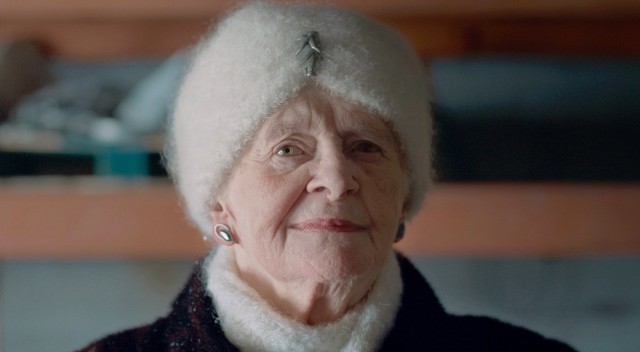Growing up in a town dominated by a car factory, I’ve seen firsthand what happens to a community when an area’s largest employer closes its doors. While my hometown was able to pivot and find other avenues for growth, some places just never recover. For the residents of Asbestos, Canada, their defunct mine is both part of their history and a reminder of more prosperous times. A contrast S/W alum Hervé Demers looks to explore in his short film Une fois la poussière retombée (Once the Dust Has Settled).
“Years after the mine’s closure, I became fascinated by the town’s paradoxical state”
Created with the aim of documenting “the existence of a disappearing culture”, the 16-minute short is centred around interviews with the inhabitants of Asbestos, as Demers allows them a platform to share how life has changed since the mine closed. With one ex-employee talking of how a job at the pit meant you were “set for life”, while another describes it as being so cold they had to wear “mitts over your mitts”, there’s a real fondness and longing to how they reminisce. Even if the mining work meant that the streets were constantly covered in asbestos dust, explosions made plaster fall from the ceiling at the local hospital and houses fell into hole.
“I became fascinated by the town’s paradoxical state”, Demers reveals as we discuss the motivation behind his short. Adding that he wanted to capture how “Asbestos citizens remained deeply attached to a mining culture”, while “the rest of the world rejected the very idea of this place”, he believes it was as if the very name of the town had become “the perfect symbol of industrial disaster”. In a statement reminiscent of Buddhist philosophy, the director even goes on to describe the situation in Asbestos as “a powerful reminder of impermanence”.

Demers speaks to various residents of the town, discussing their connection with the area and the mine.
Past and present is a main thread running through the short and it’s not only reflected in the conversations he has with Asbestos’ residents , but also in Demers’ filmmaking approach. Making the decision not to record the visual content of all his interviews, as he felt it lent a more intimate quality to the recordings, he believes this created more meaningful associations “between what is said (the past) and what is shown visually (the present)”.
In a review of Laurence Topham & David Levene’s Guardian documentary, The Winterkeeper, which I penned back in December 2023, I touched upon a “growing acceptance for more contemplative filmmaking in the online sphere”. Demers’ Once the Dust Has Settled aligns with this trend, offering a poignant testament to the enduring value of such storytelling. Like many documentaries featured on our platform, which strive to capture fading cultures, Demers’ work exudes a palpable sense of nostalgia that is integral to its impact.

“What stories today are the most valued by these women and men?” – a question Demers asked himself when creating his short
During a discussion with fellow S/W curator Serafima Serafimova, on whether we should feature Once the Dust Has Settled on our platform, she aptly described the experience of watching the film as “an invitation to slow down and experience a completely different pace and type of life”. This, to me, encapsulates much of its allure. While the short does not shy away from depicting sadness and loss, it also evokes a contemplative sense of hope, serving as a gentle reminder of the inherent goodness within people. A reminder we all need every now and then.
Although its name has now changed from Asbestos to Val-des-Sources, Demers’ fascination with the town has continued, with the filmmaker continuing to explore the deindustrialisation of the area through a documentary photobook project.

 Rob Munday
Rob Munday